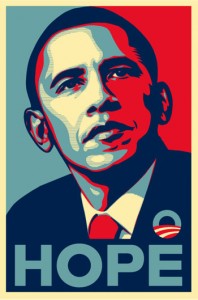Is there “a philosophical incompatibility between religion and science. Does the empirical nature of science contradict the revelatory nature of faith? Are the gaps between them so great that the two institutions must be considered essentially antagonistic?” These were the questions raised by Jerry Coyne, a professor at the University of Chicago, in a long and meaty book review (“Seeing and Believing”) appearing in The New Republic. Over at the Edge.org, a number of scientific thinkers, who regularly engage with these essential questions, have offered their own thoughts on the matter. You’ll find short pieces by Stephen Pinker, Daniel Dennett, Sam Harris, George Dyson and others. This one passage by Karl Giberson particularly struck me (though it’s not exactly a reflection of my worldview):
Empirical science does indeed trump revealed truth about the world as Galileo and Darwin showed only too clearly. But empirical science also trumps other empirical science. Einstein’s dethronement of Newton was not the wholesale undermining of the scientific enterprise, even though it showed that science was clearly in error. It was, rather, a glorious and appropriately celebrated advance for science, albeit one not understood by most people. Why is this different than modern theology’s near universal rejection of the tyrannical anthropomorphic deity of the Old Testament, so eloquently skewered by Dawkins? How is it that “science” is allowed to toss its historical baggage overboard when its best informed leaders decide to do so, even though the ideas continue to circulate on main street, but religion must forever be defined by the ancient baggage carried by its least informed?
The world disclosed by science is rich and marvelous, but most people think there is more to it. Our religious traditions embody our fitful and imperfect reflections on this mysterious and transcendent intuition—an intuition that, as articulated by some of our most profound thinkers, seeks an understanding of the world that is goes beyond the empirical.
 By now, everyone knows the famous Obama “Hope” poster produced by Shepard Fairey. Recently, Fairey has acknowledged that the poster was originally inspired by a photograph belonging to the AP Press, and now the AP is claiming that Fairey has infringed on its copyright and wants “payment for the use of the photo and a portion of any money he makes from it.” (see article in
By now, everyone knows the famous Obama “Hope” poster produced by Shepard Fairey. Recently, Fairey has acknowledged that the poster was originally inspired by a photograph belonging to the AP Press, and now the AP is claiming that Fairey has infringed on its copyright and wants “payment for the use of the photo and a portion of any money he makes from it.” (see article in 
